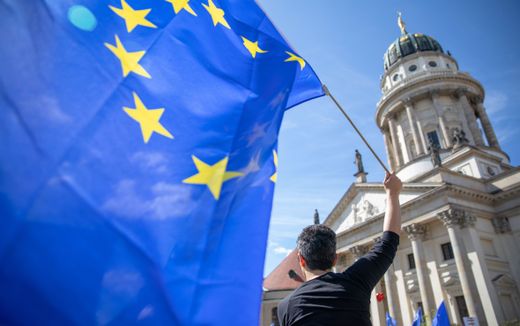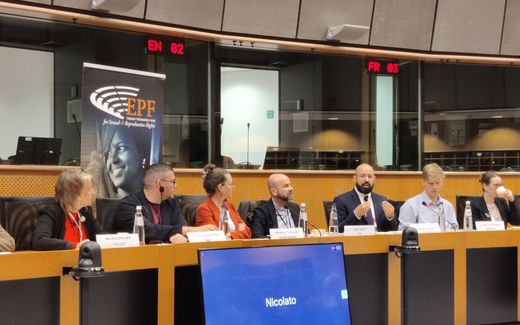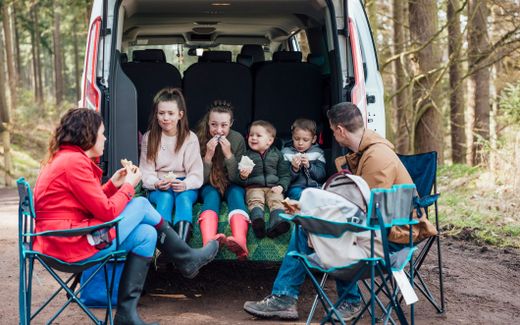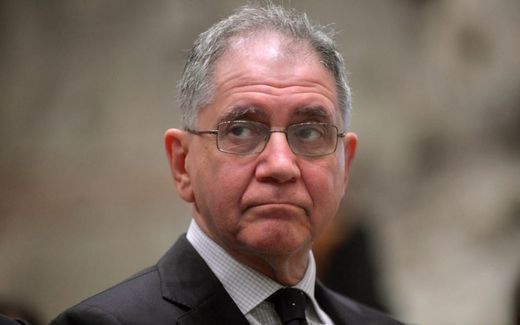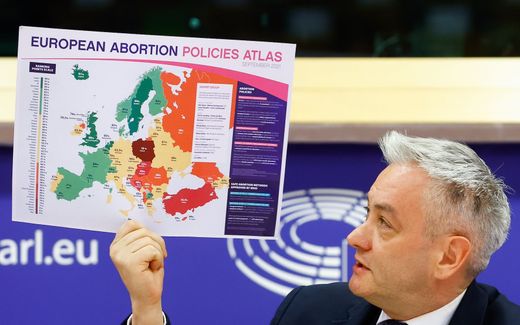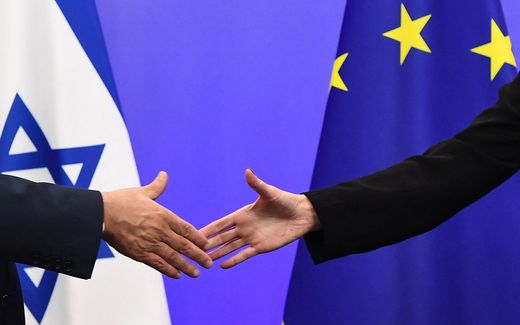Evert’s comment: European Parliament is the beehive that perfectly fits in Strasbourg
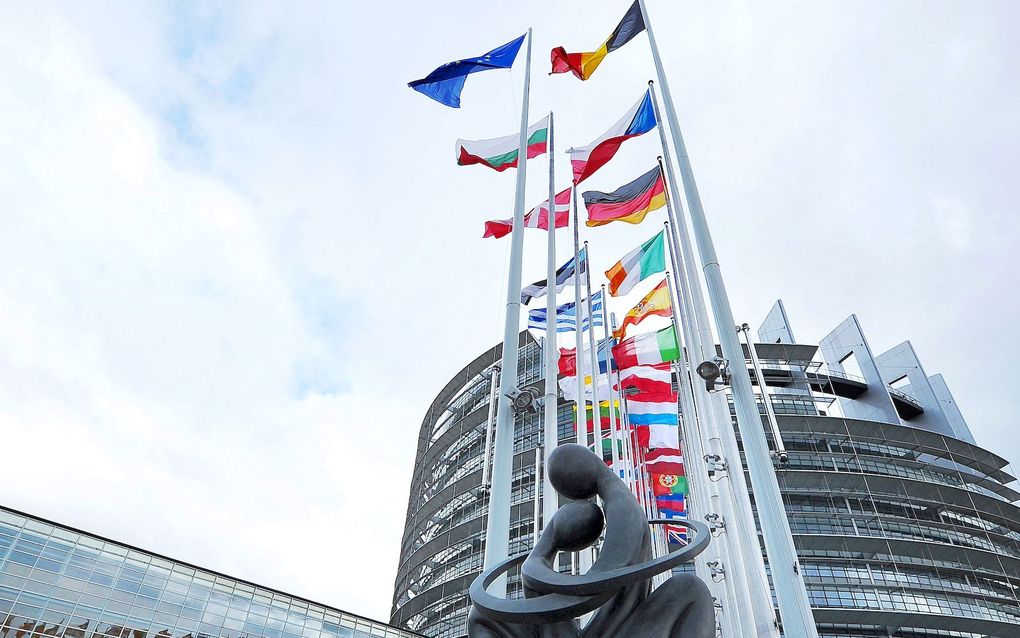
The piece of art by Ludmilla Tcherina in front of the EP building means that several nations embracing each other. But on a first glance, it looks like a pro-life interpretation of a mother embracing her child. Photo AFP, Frederick Florin
European Union
“Travelling circus.” That might be a buzz word in the weeks leading up to the European elections in June. After all, why should the European Parliament have two seats: Brussels and Strasbourg? But my idea is that there is no EU without travelling. Calling this a circus is straight-out populism.
Ten days ago, I was in Strasbourg for the last plenary session before the elections. Again, I was impressed by the large and exciting buildings in the European Quartier and also by the beauty of the city itself.

I love going to Strasbourg. I live nearer to Brussels, but I find it more enjoyable to visit the European Parliament in Strasbourg. Of course, I know about the EP’s seat debate. Currently, the parliament has two seats: one main seat in Strasbourg and a second for committee work in Brussels. Oh yes, and a third one for administrative work in Luxembourg, but nobody is complaining about that.
During my three days in the French city, I have been looking around while reflecting upon the discussion on whether Strasbourg should remain the headquarters of the EP. My conclusion is that Strasbourg is the perfect place for the European Parliament.
European integration has everything to do with transport, travelling and mobility. The great advantage of the EU is that this all has become much easier.
The Union claims to be a world power. Local thinking is fine but cannot steer the decision-making about the location of the parliament representing 500 million people. After all, the EU is not a tiny province. On the contrary, a whole continent is represented here. You must bring people together from a long distance, not on foot.
Above that, MEPs (members of the European Parliament) and Commissioners are supposed to travel through the member states to keep in contact with the day-to-day reality. Being active on a European scale is only possible if you are not Brussels centred. So, by its very nature, the European Parliament is a beehive, with people coming and going continually.

The argument against Strasbourg in favour of Brussels is that the monthly transport of documents and cars is a “travelling circus”. MEPs and their assistants must move 440 kilometres from the Belgian capital. Of course, this costs time and money.
The other side is that MEPs do better if they don’t stay in Brussels but go home to their constituency during the weekend. That changes the picture. Is travelling from Helsinki or Rome to Strasbourg more of a hassle than to Brussels?
If the Union was a machine, you could measure the ‘thing’ by its efficiency. But now, the EU is not a technocratic entity but a body. The Union is a community. A living body, in which all the members have their own right and position.
Typical of a union is that it consists of independent parts. The first countries came together in the early years after the Second World War. Most of their leaders were driven by a Christian motivation to seek peace with each other instead of conflict. Cooperation would lead to food security as well.
Eighty years after the war, we tend to forget about food and peace. We tend to forget that the Alsace region –of which Strasbourg is the principal city– was key in all the Franco-German conflicts. You can still see the German characteristics throughout the region, especially in the tourist centre of Strasbourg. However, the fact that it is French now underlines the peace between the former archenemies. How important is that to us, even if it costs money?

Peace is something that must be shared with the independent parts. That is the reason why the European Central Bank (ECB) has its seat in Frankfurt (Germany), the European Court of Justice (ECJ) in Luxembourg, Europol in The Hague (The Netherlands), etcetera.
It is enough that Brussels (Belgium) has the European Commission and the European Council.
Of course, the legal basis of this lies in the European Treaty. That means that this distribution of bodies cannot be changed without the permission of France. Many attempts have been made to compensate France, but the country has not accepted any. And that is fine. Strasbourg has its value as a symbol of peace.
“Brussels” already has a bad name among many Europeans. People associate it with the accumulation of EU institutions. Europe is always under suspicion of being technocratic instead of democratic. Centralist thinking can only add to this. Therefore, the European Parliament must be careful not to become a sideshow of the European Commission and the European Council.
The distribution of power is a hallmark of democracy. That might cost some money, but in the end, you can buy a lot for it. So, if the European Parliament should have “one seat”, that seat must be Strasbourg. On a secure distance from Brussels.

Just have a look at how Germany functions as a federal state. Many of the powers are in the states. I have spoken to state government officials who often travel to the federal capital, Berlin, for business. Also, many of those Länder even have a separate representation in the European Union on top of the German representation.
In order to learn how to govern a large body, it is better to look at Germany than at a small province. It demands uncountable miles to make all parts flourish.
To call this a “travelling circus” is populistic. Populism means telling people what they already know and what they love to hear again. And since many people are cynical, they want to hear that the EU is a gravy train full of money spenders. But is talking like that really constructive? I don’t think so.
One striking thing in Strasbourg was the ease with which I could go to parliament through the morning rush hour. In Brussels, this is usually different. That city suffers a traffic jam almost at any time of day. It does not matter if you take the bus or tram; transportation is very slow during rush hour. In Strasbourg, this was different.
In preparation for this comment, I found an article from The New York Times from February 1994 about Strasbourg as the EP seat. The matter has mostly stayed the same in the thirty years after that. And as I expect, the matter will remain the same in the coming decades. And rightly so. Strasbourg is a beautiful city that is fit for the job.
Related Articles


